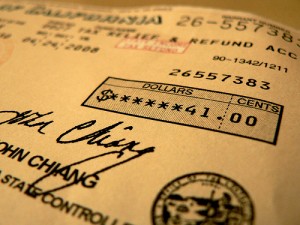This post was originally published September 3, 2009.
“Wait, wait,” you’re saying. “Budgeting helps you make better decisions with your money, which should be helping your savings account. Isn’t that the whole point?!” And you’re absolutely right.
However.
This summer, I learned a valuable lesson that I want to share with you. Sometimes being too rigid in your budget can actually lead you to make bad budget decisions.
This isn’t one of those posts about how you need to treat yourself every now and then to avoid burn out. This is about how sticking to a budget can sometimes make extra money feel, well, extra. And if it’s extra, why not just spend it? You deserve it after all that hard work budgeting, right? The problem is, this mindset can prevent you from growing your savings account.
I am constantly vowing to use the snowflaking method to increase my savings, but my strict budget gets in the way. If I receive unexpected “extra money” in the middle of the month, I often end up spending it. After all, this is extra money. I’m technically sticking to my budget, right? So I can spend this money on whatever I want.
It’s a bad habit, and it’s slowing down our savings progress. If we saved this extra money instead of spending it, we would be saving a lot more.
So how do we break this bad habit? I have a plan. Part of the problem is that I feel compelled to make a plan for unexpected money right away. Whether it’s $10 or $100, I decide how to spend it immediately, and more often than not it involves spending it on something we don’t need because, hey, it’s “extra.”
From now on, unexpected money will be deposited and ignored until the following month when it can be added to the budget. It’s much easier for me to commit money to savings when I’m creating a budget than it is for me to commit unexpected money to savings when the budget has already been set for the month.
I’m hoping that adding it to a budget will help me view it as part of our income instead of “extra money.” I’m much less likely to spend our regular income than I am to spend money that I don’t include as part of our income.
Is this a problem you face? How do you combat “extra money syndrome”?
Photo by alancleaver





